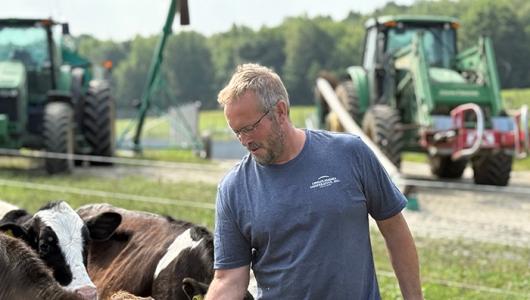Effective beginning 5/20/2025: Please note this site is under review and content may change.
American consumers choose food based on culture, income, and emotion among other factors. But Alice Melendez, the Mt. Folly Enterprises Inc. Climate-Smart Project Lead, wants people to consider food miles – the distance food travels from the location where it is grown to the location where it is consumed – when purchasing food.
The average food item travels 1,500 miles from farm to plate. Melendez is hoping to change that by building a regional food system spanning Kentucky, Ohio, and Tennessee. The project is one of approximately 140 grant projects being funded by the USDA’s Partnerships for Climate-Smart Commodities. USDA is investing $3 billion to build and expand markets for commodities made with climate-smart practices. The department hopes to increase U.S. agriculture’s competitive advantage both domestically and internationally, building wealth in rural communities. These climate-smart projects support a diverse range of producers and operations as they voluntarily adopt climate-smart agricultural practices and market the resulting commodities.
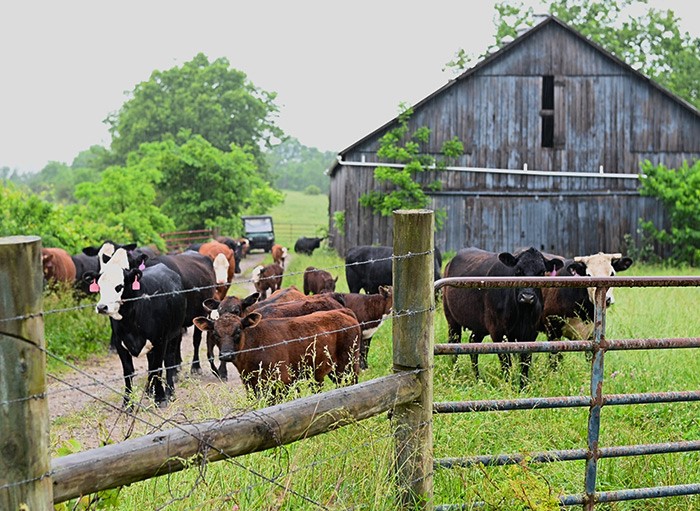
Through the Mt. Folly Enterprises Inc. project, Melendez and her team are working to create a diversified regional food system that rewards area farmers for adopting climate-smart production practices including conservation crop rotation, residue and tillage management, cover crop, prescribed grazing, and silvopasture among others.
Laura Freeman, a producer in Winchester, Kentucky, is participating in the project. Freeman was a pioneer in the cattle industry in 1985, choosing to raise cattle without using added hormones or antibiotics. She hopes to offer insight from lessons learned managing her own brand – Laura’s Lean Beef – to the Mt. Folly Enterprises Inc. project.
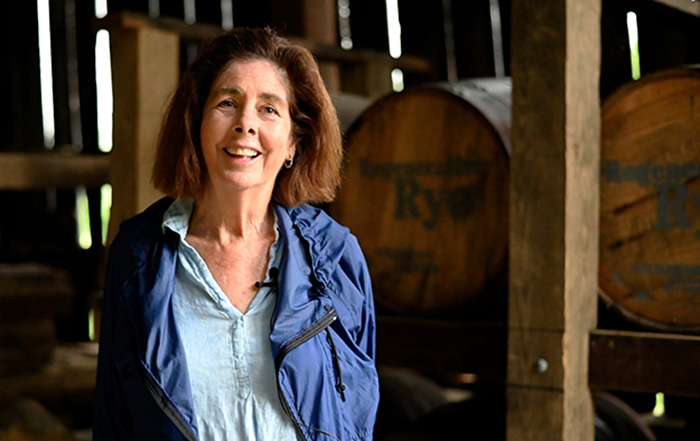
“Developing a local and regional food system is incredibly important to me,” Freeman said. “Right now, they’re driving all these animals all over the country. Cattle raised in Kentucky are usually shipped out to western states, then they’re shipped to the Midwest for slaughter, and finally they’re shipped back here to be sold. That conventional supply chain is inefficient.”
Freeman believes that the project and the resulting regional food system will reduce greenhouse gas emissions, both through the regional adoption of climate-smart production practices and the localization of the area’s supply chain, decreasing food miles and ultimately decreasing fossil fuel use for transportation and logistics.
The project will also put more dollars back into the local economy. Melendez is building relationships with a number of local meat processors, including Harrison Harvesting, Riverview, Oxbow Meats, and Jemstar Farms.
“Ultimately, the Partnerships for Climate-Smart Commodities grant is helping us create a new food chain that shifts supply chains toward more local control, investment, and economic benefit,” Melendez said. “With that investment, we are able to build on our existing wholesale relationships and create an infrastructure that will help local producers move more quantity of their climate-smart, value-added products. At the end of the day, our aim is to be able to give a premium back to that producer based on the quality of the product and the climate-smart practices.”
However, implementing climate-smart practices can be challenging from a financial and technical perspective. To overcome this hurdle, the Mt. Folly Enterprises, Inc. Climate-Smart project is providing cost-share assistance for up-front costs in implementing climate-smart practices, such as cover crop seed expenses, saplings for silvopasture improvements, and electric fence supplies for prescribed grazing.
The project has also created a learning network to help producers overcome technical hurdles in implementing climate-smart practices.
“Producers are operating on really thin margins, so adopting new practices isn’t something that you’re going to watch on YouTube and then try on your farm,” Melendez said. “You really need a network that’s offering suggestions, lessons learned and gradually you build on that foundation, and you start to see results.”
Dr. John Settimi of Eastern Kentucky University is helping to quantify those results – both from an economic and ecological perspective.
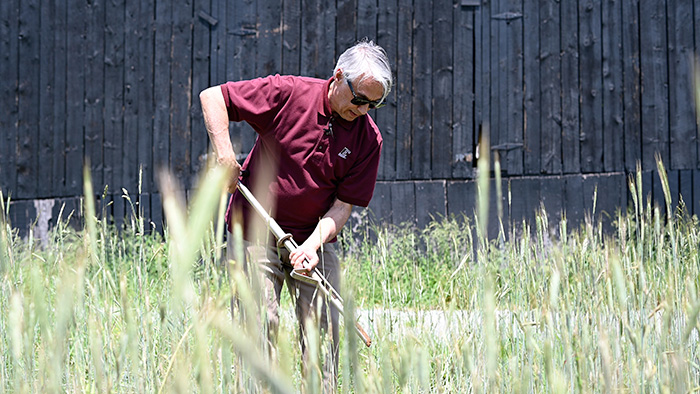
“From a resource perspective, soil is so important to farmers. They’re really interested in our data because they want to understand what changes are occurring as a result of the climate-smart practices they’re implementing and ultimately if those changes are helping them reach their goals in maintaining soil health, increasing yields and profitability,” Settimi said.
Freeman is a firm believer in the benefits of prescribed grazing for her cattle.
“I started doing prescribed grazing back in the 80s for better cattle production and better cattle health,” she said. “That’s what we were doing it for – and now we are starting to learn about the added benefits of carbon storage that this style of herd management has.”
Partnerships for Climate-Smart Commodities is working with partners like Mt. Folly Enterprises Inc. to quantify just how much of an impact that practices like cover crops, silvopasture, and prescribed grazing have on greenhouse gas reductions.
“I think it's pretty evident at this point that the climate is changing. And one of the major causes of that is the accumulation of greenhouse gases,” Settimi said. “This project is going to give us more answers on how to go about implementing these practices to maximize the accumulation of these greenhouse gases in the soil, which is one of the greatest banks of carbon that we have on this planet.”
While Kentucky farmers are at the heart of the project, Melendez hopes that the project’s model will spur the creation of more regionally centered food production systems.
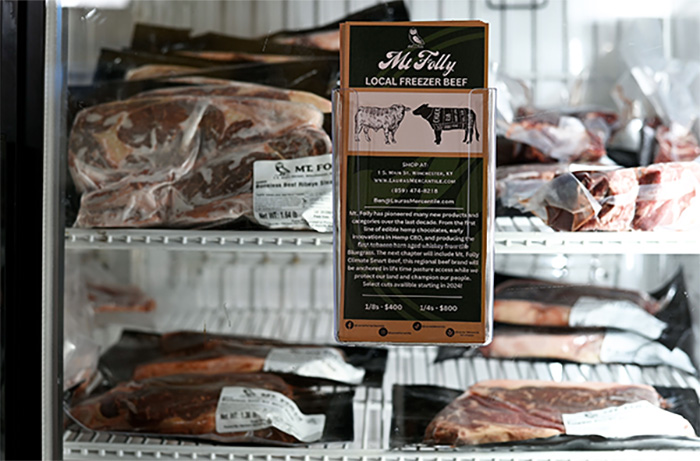
“It's better for our communities if we're raising food close to home and eating foods from our homelands,” Melendez said. “We're really grateful for Partnerships for Climate-Smart commodities because it's enabled us to develop a regional market structure that will help a bunch of farmers push their capacity with these climate-smart practices and create traceable, value-added products for customers.”
By supporting a diverse range of producers and operation types, USDA and its partners are innovating a number of climate-smart solutions that impact numerous natural resource concerns while also strengthening rural economies by diversifying revenue streams. To learn more about the Mt. Folly Enterprises Inc. climate-smart project and other Partnerships for Climate-Smart Commodities projects, visit the project dashboard. Interested producers can learn more about projects in their state by commodity type and climate-smart practice implementation and can access project sign-ups via the site.
Brooke DeCubellis, Partnerships for Climate-Smart Commodities Communications Coordinator, can be reached at brooke.decubellis@usda.gov


